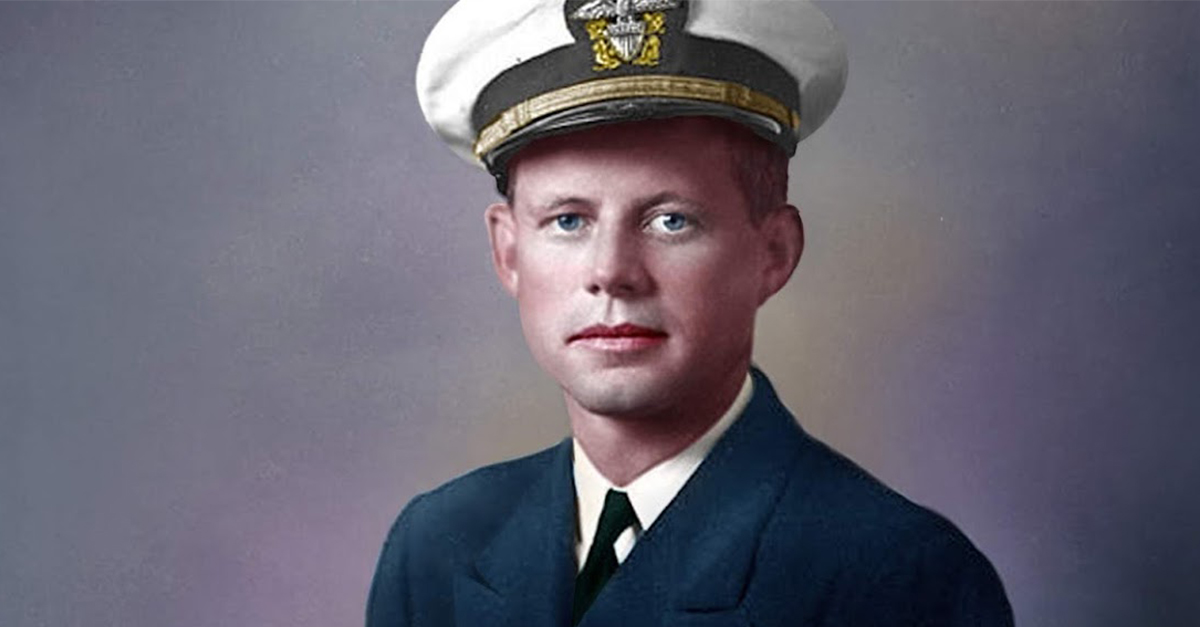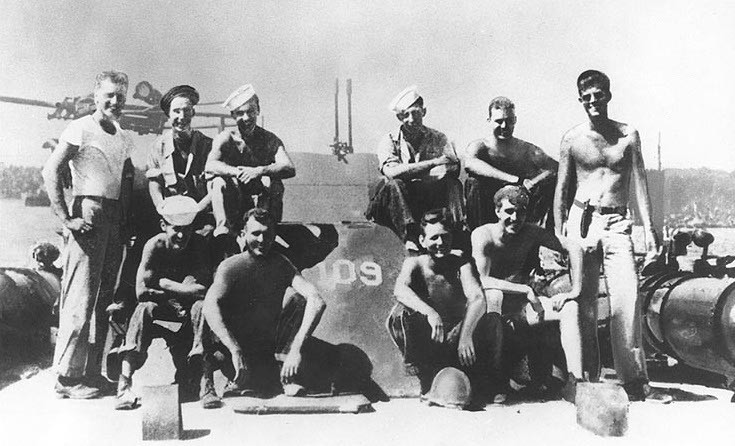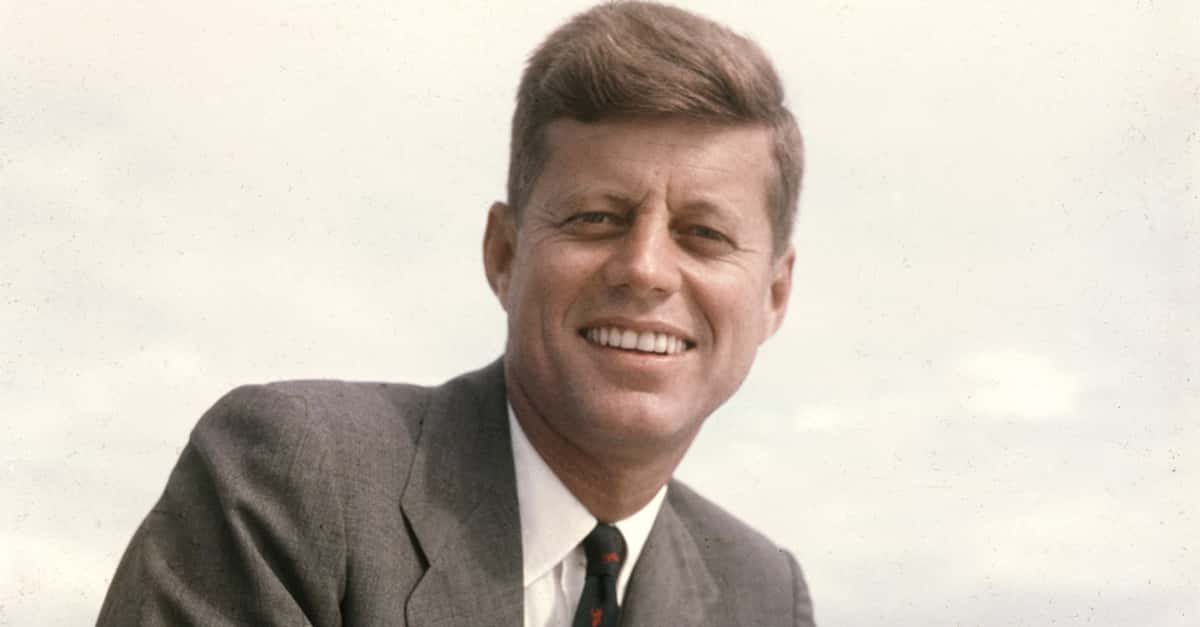Years before he became the 35th President of the United States, John F Kennedy showed great courage and leadership as the commander of a patrol boat in WWII. His heroic actions earned him service honors, and also shaped his character and leadership style during his later presidency.
The Night PT-109 Was Sunk
On August 2, 1943, while patrolling the Solomon Islands, Lieutenant Kennedy’s patrol torpedo boat PT-109 was struck by the Japanese destroyer Amagiri. The much larger vessel sliced Kennedy's boat in half, claiming the lives of two crew members instantly. The survivors were left stranded in enemy-controlled waters, facing exhaustion, injury, and the constant threat of capture.
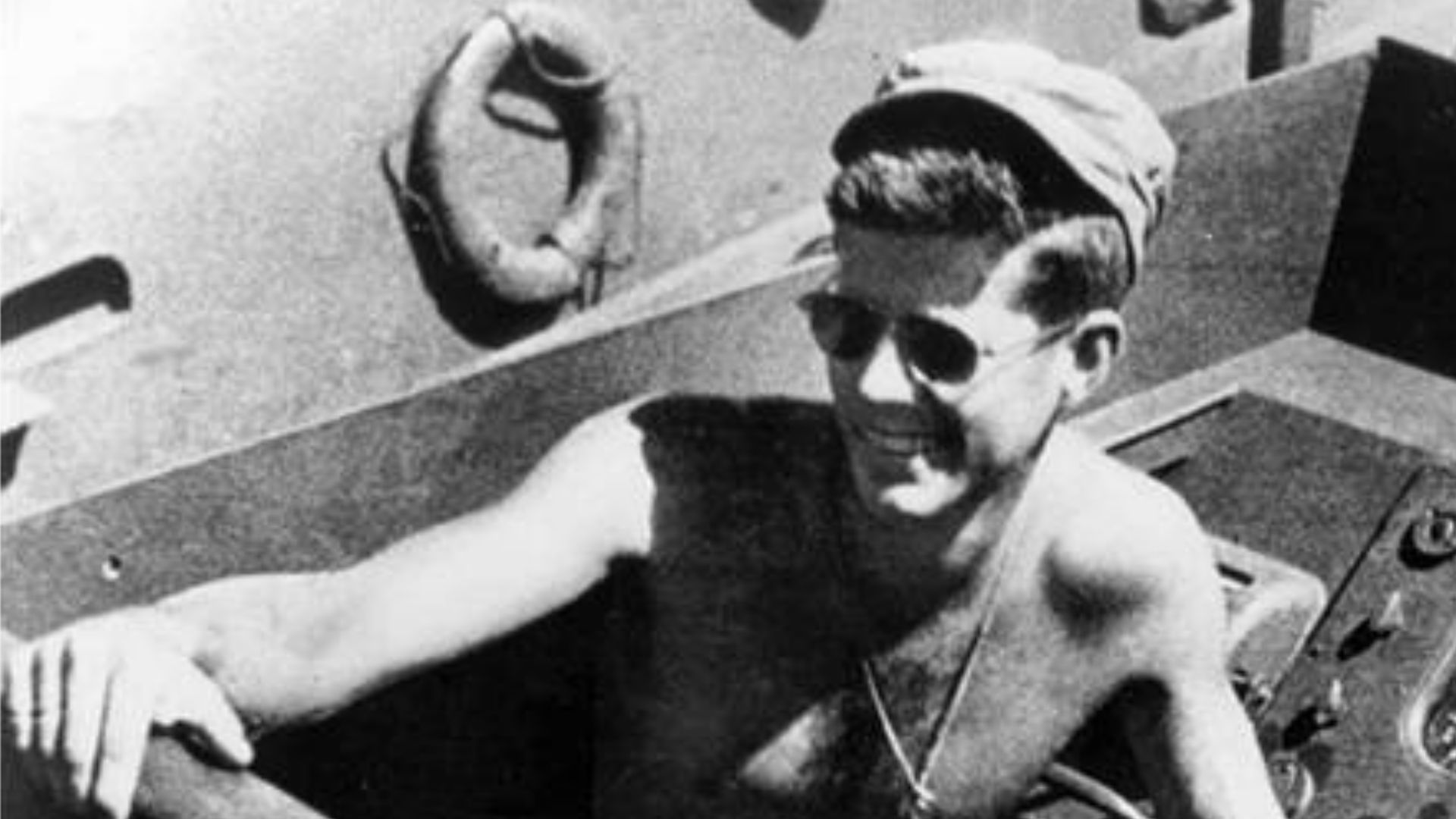 U.S. Navy photo, Wikimedia Commons
U.S. Navy photo, Wikimedia Commons
Kennedy’s Leadership Under Fire
Despite suffering from a chronic back injury, Kennedy took command of the desperate situation. He towed an injured crewman by clenching the man's life vest strap in his teeth and led his crew on a grueling 3.5-mile swim to a nearby island. Over the following days, Kennedy repeatedly swam through dangerous waters seeking help, refusing to give up on his men.
Resourcefulness And Survival
Kennedy demonstrated both courage and ingenuity. Using a coconut shell, he carved a message and entrusted it to local islanders aligned with the Allies. This clever act of communication led to the crew's eventual rescue. His determination ensured that 11 of the 13 crew members survived the ordeal.
Thirst For Vengeance
Kennedy brooded for years about the loss of the two crew members under his charge. He would spend the rest of the war trying to get even with the Japanese for the terrible incident. Meanwhile back home the story of the sinking was spreading far and wide.
The Story Gets Out
Journalist John Hersey interviewed Kennedy about the incident in 1944 and sold the PT-109 story to The New Yorker. The story spread quickly among a reading public eager to learn as much as they could about what was going on overseas. But others had serious questions about what happened.
Sibling Rivalry
Kennedy’s competitive older brother Joe Jr, a navy pilot and lieutenant, wasn’t impressed. He wrote Kennedy a letter in which he pointedly asked “where were you when the destroyer hove into sight, and exactly what were your moves?” Other Navy officers noted that everything Kennedy did until he was in the water was wrong. But the press and the public largely glossed over those complaints. Whatever had led up to the crisis, Kennedy had more than redeemed himself in his efforts to save his crew.
Recognition And Service Honors
For his bravery, Kennedy received the Navy and Marine Corps Medal and a Purple Heart. The story of PT-109 spread widely in post-war America, contributing to his public image as a war hero. It would later become a cornerstone of his political identity during his campaigns for the Senate, and later for President of the United States.
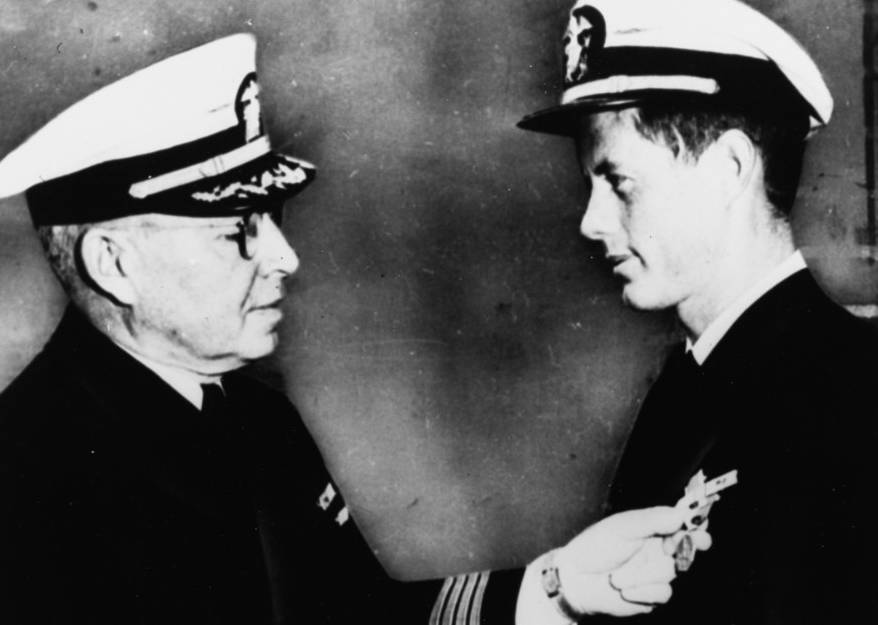 United States Navy, Wikimedia Commons
United States Navy, Wikimedia Commons
Shaping His Approach To Crisis Management
The difficult days after PT-109’s sinking prepared Kennedy for high-stakes decision-making. As president, he faced moments like the Cuban Missile Crisis, where calmness under pressure was crucial. His wartime experience reinforced his ability to assess risks and not panic during global tensions.
Empathy For Servicemen And Women
Kennedy’s combat experience gave him a deep empathy for people in the services. As president, he prioritized veterans’ affairs. His understanding of war’s human cost made him wary of escalating conflicts without exhausting diplomatic solutions. The loss of his brother Joe Kennedy Jr during WWII also shaped these attitudes.
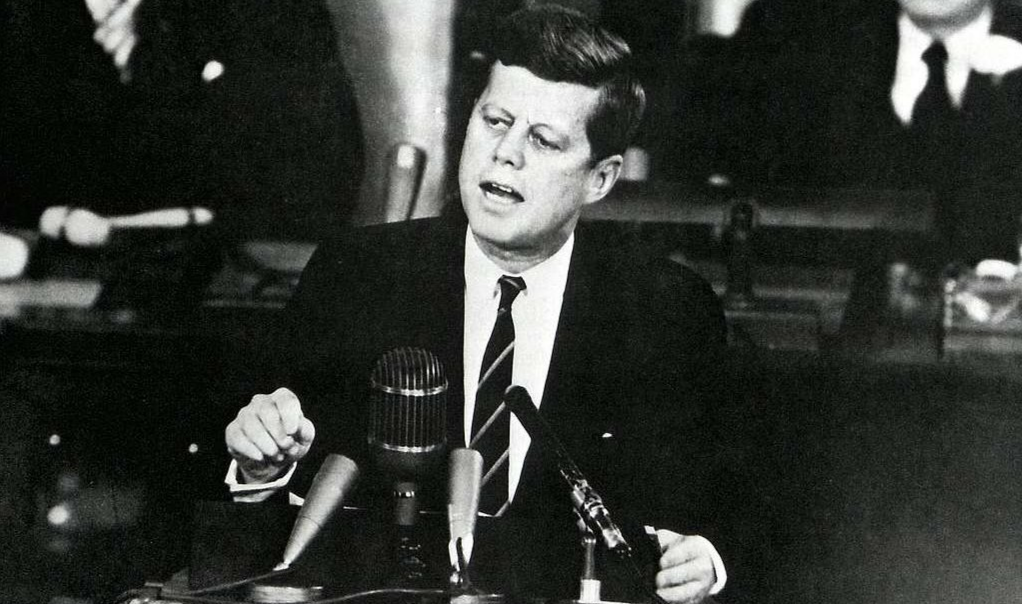 Defense Visual Information Distribution Service, Getarchive
Defense Visual Information Distribution Service, Getarchive

History's most fascinating stories and darkest secrets, delivered to your inbox daily.
Influence On His Call To Service
Kennedy’s famous inaugural address line—"Ask not what your country can do for you—ask what you can do for your country"—echoed his wartime experience. The sense of sacrifice, service, and collective responsibility he embodied on that remote island carried through to his vision for America.
A Heroic Legacy: Words Backed By Deeds
John F Kennedy’s actions as commander of PT-109 were a formative chapter in his life that shaped his values and leadership. The courage, resilience, and sense of duty he demonstrated in the Pacific transcended politics, and sent an enduring message of service above self.
You May Also Like:
Enduring Facts About Poon Lim, The South Atlantic Seafarer
Tragic Facts About Kathleen Cavendish, The Lost Kennedy
Chic Facts About Jackie Kennedy Onassis, The President’s Widow

